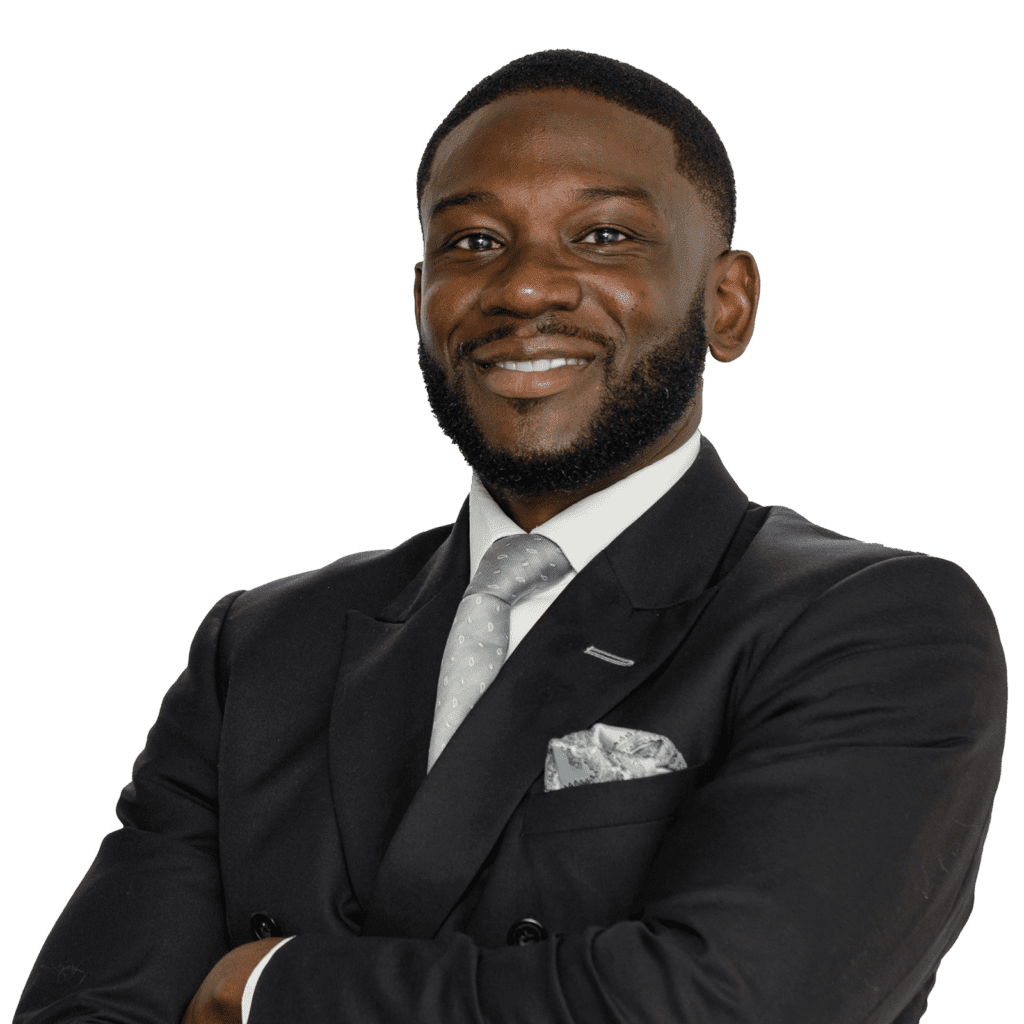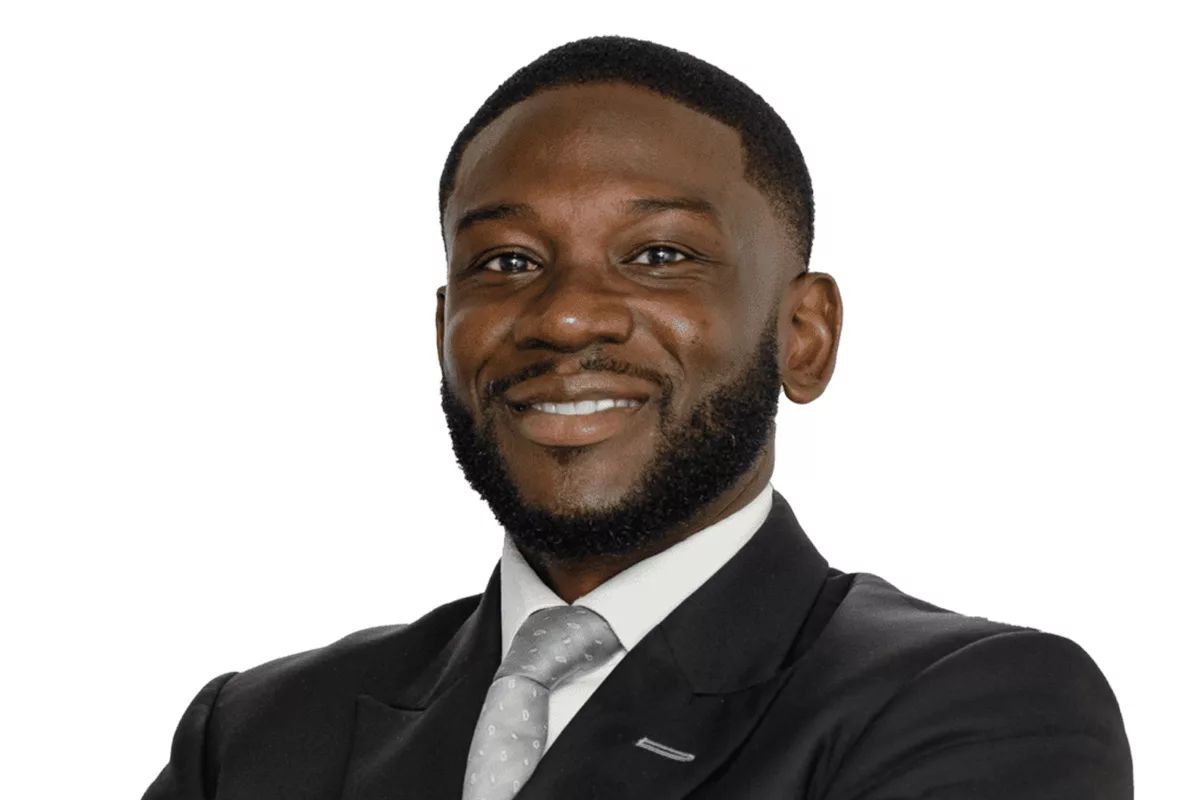Interview with Nathan Alleyne-Brown, Barrister at No5 Chambers

Nathan Alleyne-Brown is a well-established Family Law Barrister at No5 Chambers.
Nathan regularly represents parents, children and wider family members in Public and Private Law Children proceedings, but he also covers all other aspects of Family Law. These cases range from low level cases through to more complex cases appearing at the High Court. Nathan is also a criminal defence advocate.
My heritage is Black Caribbean. My mother is Caribbean Jamaican, and my father is Caribbean with a mixed background from Barbados and Trinidad and Tobago. My grandmother came to the United Kingdom in the early 1960s around the Windrush Generation. She initially settled in London, then moved up to Luton.
I attended a state school and then went onto college. I found it difficult to focus on college, so I then moved onto a sixth form, where I obtained A-Levels. I enrolled at the University of Westminster and graduated with an LLB Law degree. I knew I wanted to be a barrister, so I went to City University in London and completed the BVC (bar vocational course) in which I received a very competent grade.
Once I completed the BVC, I became a Legal Assistant at the London Borough of Haringey in late 2006. I assisted around 3 to 4 Local Authority lawyers with administrative tasks and some case work too. One of the most memorable moments, working at the Local Authority, was clerking in the Baby P case for 8 weeks at the Old Bailey. I sat with Rex Howling KC, who was representing the Local Authority, and I found this extremely interesting. At that time, the Victoria Climbie case was also very prevalent.
I then began to search for pupillages. I successfully secured a pupillage at 6KBW, which was a common law set. I predominantly gained experience in criminal law, but I gained some experience in family law. I was there for a year and a half until there was a split at the chambers. 6KBW then merged onto 2KBW and I completed my pupillage there. After completing my pupillage, I remained at 2BKW for a year until I moved to 2 Dr Johnson’s Buildings. I recently left 2 Dr Johnson’s Buildings and joined No5 Chambers.
My goal was always to be a barrister. I enjoy advocacy and the independence of the Bar. I like the ability to be at the cutting end of decision making, being able to make submissions and being there when the ultimate decision is made. Being a solicitor would not be able to fulfil that for me. When I was called to the Bar, it was the best feeling knowing that all the hard work had paid off.
Being a young black man has always been difficult in, what is essentially, a middle-class job. In terms of numbers, it is difficult for ethnic minority men and women to secure pupillages and qualify, let alone succeed. It is hard to climb the ladder and get to the next steps. There was always a thought in my head, “Am I getting the same work as the other counterparts in chambers?”. Historically, I would feel that I would have to work much harder so that the instructing solicitors and clients could find trust in me. I have at times in the past seen that there is a racial element and felt these types of pressures. Now, it does not feel like this as much
The Witness Box was created during lockdown when we were not socialising in the usual ways before Covid. It was an interactive talk show, hosted on Instagram live, to inspire people to discuss their futures and aspirations. Some of the discussions were law related, as that is my background. I interviewed people from all walks of life. It would enable students and others to talk about their experiences, life goals, and to also ask for help regarding my profession. It was great in plugging the gap of feeling lonely and not connecting with others during Covid. People would tune in not knowing too much about the law, but then after listening to one of the shows, they would find it interesting!
Criminal advocacy is something that is second to none. Being in the courtroom with a jury and defending somebody’s human rights is fulfilling. Convincing a jury of 12 men and women that your client did not commit the crime is a great element within criminal law.
I have always worked on family law alongside criminal, but not to the same extent. I initially selected family law as an optional module on the LLB Law degree, so I always knew it was something I wanted to be involved in. Everybody has a family, and we all have an insight into the dynamics of a family for example children and marriage. Families are very important and the law surrounding it has always been of interest to me.
A key piece of advice is to stay true to who you are. It is very easy to feel as though you need to change how you speak and dress. Do not lose the core essence of who you are as that is how you have made it to where you are today, and this can be the driving force of who you become in the future.
A second piece of advice is to be courageous. It can sometimes feel intimidating when your opponent is a barrister with 20 years of call or facing the Judge, but you must just go for it! It can be frightening as you are on your own and the Judge is relying on you but try to think about the basics and be firm in what you are saying. If you do not believe in what you are saying, it will be hard to persuade everyone in the courtroom. There has always been somebody in the same position as you and you are not the only one.
Being disciplined is very important when you are a barrister. If you want to do this job and do it well, you have to take the time out, think about what you are doing and prepare. Those who are disciplined and show dedication are the ones who achieve the right results. Above and beyond this, is ensuring that the client receives first class representation.
Interview conducted by Rosalia Scannella of Goodman Ray




